|
When a sporting great is ‘in the Zone’ it’s an experience of pure athletic alchemy. All the doubts thrown up by the conscious mind disappear, allowing all the long years of practice to soar back out in a blissful moment of apparent magic. This is when things just work – indeed the outer world seems to cooperate with every inner whim. At extremes, time obliges by slowing down. Space can also flex as you become one with your equipment, your surroundings and even the entire universe. No matter how pressured the occasion or how huge the crowds, it’s usually a peaceful experience too, hence the spread of techniques like meditation to help sportspeople find this elusive nirvana when it matters. Over seven years of research for In The Zone I met hundreds of legends of everything from athletics to boxing, gymnastics to skydiving. For most, the secret is to find calm amid all the intensity. Yet there are exceptions, and the most high-profile of all comes from sailing. ‘They’ve made me angry and you don’t want to make me angry…’ These words, paraphrasing David Bruce Banner in 1970s television’s The Incredible Hulk, capture much of what makes the greatest sailor in Olympic history tick. Ben Ainslie is a rare example of a sportsman who thrives on getting mad and usually even. You’d imagine Denmark’s Jonas Høgh-Christensen might have known that. Six races into the Finn class of the 2012 Olympic sailing regatta, with Ainslie chasing a record fourth straight gold, the Dane had beaten him in every race. Then he ganged up with Dutchman Pieter-Jan Postma to force the home hero into a precautionary penalty turn. Big mistake. After Ainslie threatened to turn green, he began another stunning run for gold. Maybe Høgh-Christensen should have listened in on my chat with the Briton a month earlier… ‘Normally when I’m under pressure or I get angered by something, it seems to bring out the best in me,’ Ainslie told me. ‘I don’t necessarily know why that is. But it’s a good trait to have because that’s what often happens. For some people, if they get put off their natural stride they just fall apart. But anger works as a trigger for me. It just makes me want to do better or try harder and normally that’s the case.’ Ainslie first got ‘angry’ when he was herded to the back by Brazil’s Robert Scheidt in the penultimate race of the 1996 Olympics. Then something ‘clicked’ in the young debutant, who started flying as he seethed, gaining 15 places but falling short of gold – for the only time, as it turned out. Ainslie received death threats when he returned the favour four years later but ‘from then on the gloves were off…’ Anger management course? No thanks… it is Ainslie’s preferred route to the Zone. Competitive sailing is so tactical it is rarely about just getting as quickly as possible from A to B by sea, yet even this game of maritime chess doesn’t stop the magic. ‘That peak performance comes when everything comes together at the same time, when you’re really at one with the boat, the conditions and yourself,’ adds Ainslie. ‘It doesn’t happen often, but when it does it’s a great feeling. It’s definitely possible to get in the Zone in a tactical battle too. That’s when the training comes in and you sail the boat on autopilot because your mind is so focused on the tactical ramifications of what you need to do next. You might not sail at 100 per cent but you can be at a very high level even without thinking about it.' The Briton has already won the America’s Cup once, having sparked one of sport’s all-time great comebacks as tactician for Oracle Team USA in 2013. His home nation has never matched the feat in 173 years of attempts, despite its long-time claims of ‘ruling the waves’.
Ainslie has himself led British teams twice before without success but this week he is finally aiming to rectify that, skippering the Ineos-backed Britannia in a best-of-13 series against reigning champions Team New Zealand in Barcelona. How revved up is he already feeling at the prospect? Funnily enough Ainslie is known for his placid personality on dry land; it’s only the sea that fires him up. Yet he insists age and experience have blurred the edges between his Jekyll and Hyde. ‘When I was younger I was a bit of a hothead on the water,’ adds Ainslie, ‘but on land I was so shy I wouldn’t speak to anyone – partly because of the problems I had at school, where I was bullied. That had a marked effect on me: I felt I needed to prove myself and it made me fiercely determined to be successful. As I’ve got older the two personalities have merged. Now I’m more confident on land and I’m calmer on the water, which helps.’ After decades of sailing solo, Ainslie acknowledges the biggest challenge in the team environment is getting everyone to peak at the same time. ‘It’s no good an individual trying to do one thing on this own ten times better than the rest,’ he adds. ‘It’s a collective output so it’s about getting everyone working together to a similar level where they can all operate. Then you start getting somewhere.’ One final piece of advice for Team New Zealand: try not to make them angry.
0 Comments
It was a treat to visit the studios of Premier League Preview earlier this week to talk about the climax of the 2021-2022 season. Focusing on Manchester City's match away at West Ham on Sunday, we talked about how Pep Guardiola calls on the power of belief to turn in such an impressive string of strong performances when it matters.
The London Stadium has been a happy ground for Manchester City in recent years but this time the pressure is magnified as they aim to get over the line in the title race - potentially with a makeshift defence after a run of injuries. West Ham also head into the match on the back of a European semi-final disappointment of their own so they will be looking for a high at their last home game of the season. Make no mistake: when you get this close to a title it's ALL about the mind. But if either team needs any more inspiration they can think back to all the peak performances at the very same stadium 10 years ago at the 2012 Olympics - as described by the likes of Jessica Ennis-Hill and Usain Bolt in the pages of In The Zone: How Champions Think and Win Big. You can watch the final cut today on BT Sport at 6pm or Sky Sports at 7pm. We all start life as dreamers. Whether we picture our future selves as footballers, film stars or astronauts, we have a natural, effortless ability to transport ourselves into any reality we choose. Then we grow up – and most of us give up. That’s not entirely our fault. Parents and teachers usually mean well but rarely grasp the power their words have. The world’s most effective dream destroyer is the phrase: ‘You’ll never earn a living doing that…’ Ian Cartabiano is one of the lucky few who slipped through the net. The son of a toy designer father and an artist mother, he once saw his Dad draw a Ferrari Testarossa and promptly started doodling cars for himself – until, aged 12, he knew this was what he wanted to do. Forever. Thirty years later Cartabiano is still living the dream, having designed many of Toyota and Lexus’s most striking cars of recent years. And I was lucky to speak to him about his creative process, his moments in the Zone and more. Read the full article here. As part of this interview series, which will continue over the coming months, I also enjoyed having a chat with Lexus sportscar ace Jack Hawksworth (pictured above). He described the work he puts in on visualisation and other techniques to make sure he finds the Zone every time he gets behind the wheel. Read the full article here.
The world is drowning in fear right now.
Whether we are most afraid of a virus or the draconian global response to it, there is plenty to be scared of – and, thanks to relentless fearmongering everywhere we look, no escape. Hell, we’re not even allowed out. While we wait for some unspecified knight in shining armour to set us free, it’s pretty clear that we are supposed to be sitting here quaking in our boots. This is the message reinforced with every new statistic, every news broadcast: be afraid, be very afraid. But there is a critical life lesson nobody ever told us in school, one they aren’t telling us now either… What we fear, we attract. That’s because our thoughts have power. This is the principle underlying everything I’ve ever written about visualisation. Elite athletes have been using the positive side of this for 50 years. But it works both ways, good and bad. When we worry about anything – whether it’s running out of money or getting ill – we massively increase the chances that it will happen to us. Worse yet we have the ability to infect others – loved ones, friends, neighbours – with our fear, ensnaring them in our nightmare. And we don’t need to be within two metres of anyone to pass it on: we can do it over the phone, through Skype, Zoom, Whatsapp, Twitter, Facebook, Instagram, radio, TV, anything. As such it’s no wonder this fear has gone viral far quicker than any illness. Within the space of two weeks we have accepted being ordered to stay away from our fellow human beings lest we infect them, to the point that a high five is now an unthinkable act, let alone a hug. This is how we have been persuaded that in order to preserve life for some, the best response is to stop life altogether. For everyone. Now that really is a tragedy. There’s a reason why incarceration is a punishment – and why solitary confinement is the most brutal of all. Yet that is precisely what we have just inflicted on some of our most vulnerable people, not least the elderly who this is all supposed to be protecting. Then there are the millions who have suddenly been left without jobs or income, with all backup rapidly disappearing. But even on a less desperate, more trivial level we are all being robbed of life – and everything that makes it meaningful. Within sport alone we’ve seen the dreams of a planet of Olympic hopefuls evaporate, along with everyone else who has dedicated decades of their lives towards a big event in 2020. It’s not just the competitors; half the population of Liverpool have waited 30 years for a title their team richly deserves but is now irreversibly tainted. No doubt that’s funny to many, and Bill Shankly’s view of the relative importance of football, life and death may indeed be flawed. But what of the millions of needy kids all over the world for whom football (or basketball or skateboarding or boxing) was their only highlight amid the daily gloom? They really have lost their lifeline. Make no mistake: dreams matter. Whatever we do in life, we all have dreams – from wanting to be a pop star to starting our own business to taking the family on holiday – but we are currently watching helplessly as they are sucked into this vortex of fear. Individual fear is damaging but collective fear is catastrophic, dragging everyone in. Finally along comes institutionalised fear, which is a one-way street to dystopia. And this month’s events sadly show it can happen in the blink of an eye. Snooping on our neighbours? Seriously? So it’s time to change the record. Mercifully it’s not (quite) too late. But no, there is no knight on the way to rescue us. We can only do this for ourselves, and it starts with ditching ALL the fear and dreaming as big – and as free – as we possibly can. To illustrate let’s go back half a century. At the 1968 Mexico Olympics British 400m hurdler David Hemery went into the final with only the seventh fastest time. Yet he somehow had an unshakable belief in his head that he would break the world record. That’s exactly what he did, taking gold by almost a full second. It was only when Hemery headed to Munich four years later – this time as the clear favourite – that he discovered the full power the mind has to dictate events. Ahead of his race he just couldn’t shake an image of blasting off at world record pace for 300m before running out of energy on the final straight. Yes, that’s precisely what happened. By filling his mind with negative imagery he now reckons he pre-programmed the outcome. And most of us are doing just that all day long. ‘We have the power to affect our own futures almost entirely,’ insists Hemery. ‘With our mental focus we get what we expect to get. The mind is key; the mind is our gift. It’s like a self-fulfilling prophecy. ‘People say, “Oh well, it’s luck.” But to a certain extent we make our own luck. If we visualise and rehearse the best we can do and prepare for that, we’re more likely to have it happen. It doesn’t mean living in a fool’s paradise, it just means: “What is the best I can do under this circumstance?” If you prepare for the worst it’s more likely to happen. If we dwell on the negative or on sickness, that’s probably what we’ll get. ‘It was Virgil who said: “They can if they think they can.” It’s absolutely true. We prove ourselves right. If you think you can’t then you will prove yourself right too.’ Think you can? I know you can. To help, here’s how another one-lap legend did it… Whatever future you dream of – whether it’s for yourself, your kids or your grandkids – it’s time to picture it. Get your loved ones to do the same. It can be anything, but the bigger the better. If nothing comes to mind right now, how about peace and freedom? Dream of it first thing every morning, dream of it last thing at night. It need only take a minute, but it sets the universe in motion on your behalf, and ours. Together we can dream this whole nightmare into submission. Only by dreaming can we wake up. South Africa’s victory at the 2019 Rugby World Cup is one of those occasions when sport’s script really does seem written by higher forces. Led by inspirational captain Siya Kolisi, the Springboks arrived in Japan on the back of a rough few years – in rugby terms. But they had a secret strength that bonded them together: playing to unite a nation that had endured a rough few decades. The speeches coach Rassie Erasmus gave in the build-up to the final against England sum up this approach. What is pressure? It’s not having a job, or not knowing where the next meal is coming from. Rugby pales into insignificance by comparison. Those were the people this team was playing for – and it led to a unity rare in sport. At this month’s Laureus World Sports Awards in Berlin, where the Springboks earned the Team of the Year award, it was a huge privilege to quiz Kolisi about how his team generated such collective belief ahead of the biggest day of their lives. ‘We had a coach who believed in us,’ Kolisi told me. ‘Coach Rassie knew what we wanted to achieve, as did all the management, the physios, everyone. All we had to do was work as hard we could to make sure we played the best game on Saturday. We watched tapes every day so we saw every player on the opposition and knew how they played. Doing that over and over again makes you start believing in yourself. Then you don’t have to worry about anything… By Thursday you’re already psyching yourself up mentally – because we’d prepared throughout the whole week. That gave us a lot of confidence, so we went into the game without fear. We just wanted to focus on doing our best.’ The result was one of the most dominant ever World Cup Final performances. Indeed such was the physicality of the first 15 minutes that scrum-half Faf de Klerk recalls feeling such ‘intensity’ from the team – even when things weren’t going right – that he was already convinced they could pull it off. Did it feel written? Not quite. Kolisi offered me the gentle reminder that: ‘We still had to play’. But by midway through the second half they were running riot. If you want a good laugh, check out Francois Louw’s answer to my press conference question about how that really felt on the pitch in the YouTube video below. Then gain some perspective from Schalk Brits on what the eventual result meant to the nation of South Africa… Life as a football fan can have its surreal moments. In February 2017 I happened to watch two matches in the space of a week. Both drew crowds of about 5,000 people. Both cost me about £15 to get in. One was an English League Two match featuring the might of Grimsby Town. The other was a French Ligue 1 match between AS Monaco and Metz that I only caught because I was on the Riviera collecting the last couple of interviews for In The Zone, notably a certain Usain Bolt. The setting was the gloriously picturesque Stade Louis II, though the tiny crowd gave it all the atmosphere of a pre-season friendly – despite the fact that Monaco were busy running away with the Ligue 1 title. The home line-up featured the likes of Radamel Falcao, Joao Moutinho, Fabinho (now with Liverpool), Tiémoué Bakayoko (now with Chelsea) plus Benjamin Mendy and Bernardo Silva (both now with Manchester City). Thomas Lemar (now with Atletico Madrid) was there too, but he didn’t even make it off the bench. Have I forgotten anyone? Oh yeah, the Monaco keeper was Danijel Subasic, who now has a busy Sunday lined up keeping goal for Croatia in the World Cup Final. Then there was a young lad who also has his plans for Sunday sorted: Kylian Mbappé. You might just have heard of him by now. But I’m prepared to admit that as I looked at the team sheets, his wasn’t the name that stood out. His £160million move to Paris St Germain may have been just months away, but this match came before Monaco set the Champions League on fire en route to the semi-finals. It didn’t take the 18-year-old long to make his mark. As early as the seventh minute Mbappé latched onto a lay-off from Falcao and swept it home first time. By the 20th minute he’d added a second. In the second half he completed his first ever Ligue 1 hat-trick as part of a 5-0 romp. Given the pitiful crowd, something tells me this might be an ‘I was there’ moment that will give me bragging rights for a while… Fast forward 17 months and – with the likes of Ronaldo, Messi and Neymar Jr coming up short – Mbappé is being hailed as the undisputed star of the 2018 World Cup after lighting up game after game in front of slightly bigger crowds. Now France’s golden child has the chance to seal that status, with his nation and much of the world willing him to take Sunday’s World Cup Final by storm.
This French team is loaded up with great players, not least an impressive defence and the midfield duo of Paul Pogba and N’Golo Kanté, who would walk into any team in the world. But never underestimate the effect of a genius, particularly when it comes to getting a group of players into the Zone en masse. No matter how motivated and well drilled a team is, in fast-flowing ball sports the difference often stems from a flash of brilliance. It seems the Zone is contagious and team-mates can catch greatness from each other. That’s according to Marcel Desailly, of the French football team that was the first to hold both World Cup and European Championship, starting with their glorious triumph at home in Paris 20 years ago today. ‘France didn’t qualify for the 1994 World Cup but in 1996 we started to build that new generation,’ Desailly told me for In The Zone. ‘We had natural leaders who showed they could perform at a higher level. We were professional players, focused and dedicated to the game. On top of that we had Zidane. ‘When Zidane was there it was different, even in a training session. A star like that brings direct motivation and more responsibility for the others. You want to keep the ball correctly, your attention is higher and you are more focused. The concentration and consistency we showed were what allowed us to last at the top. ‘From 1998 to 2001 we were the world’s best team. Luckily we were able to deliver collective performances. A collective link in a team is very important in football and makes the difference every single time.’ Mbappé is not even 20 years old yet, but if he can inspire his team in the same way we could be in for something special. Of course France still have to overcome a team in Croatia that is high on national pride and has its own talisman in Luka Modric, 13 years Mbappé’s senior. Both teams have shown grit, skill and outstanding team spirit to make it this far, but something tells me Monday’s headlines will mention a magic moment from a man whose name begins with M… Either way, it was the best £15 I’ve ever spent. (No, not the Grimsby game...) |
AuthorClyde Brolin spent over a decade working in F1 before moving on to the wider world of sport - all in a bid to discover the untapped power of the human mind. Archives
October 2024
Categories
All
|
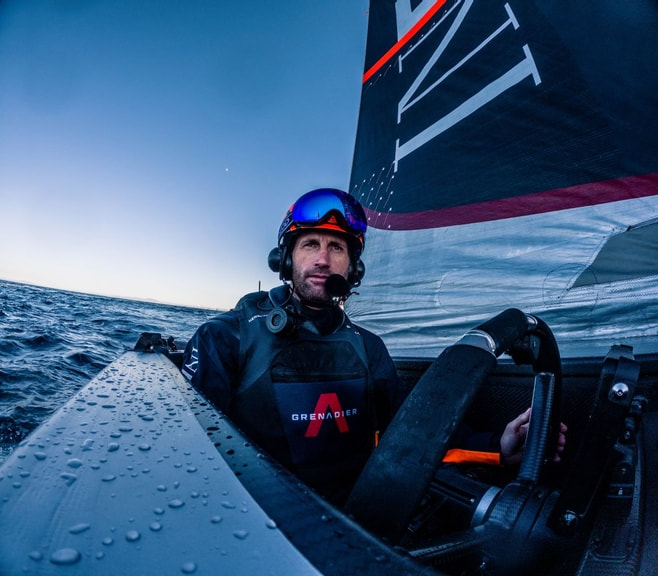
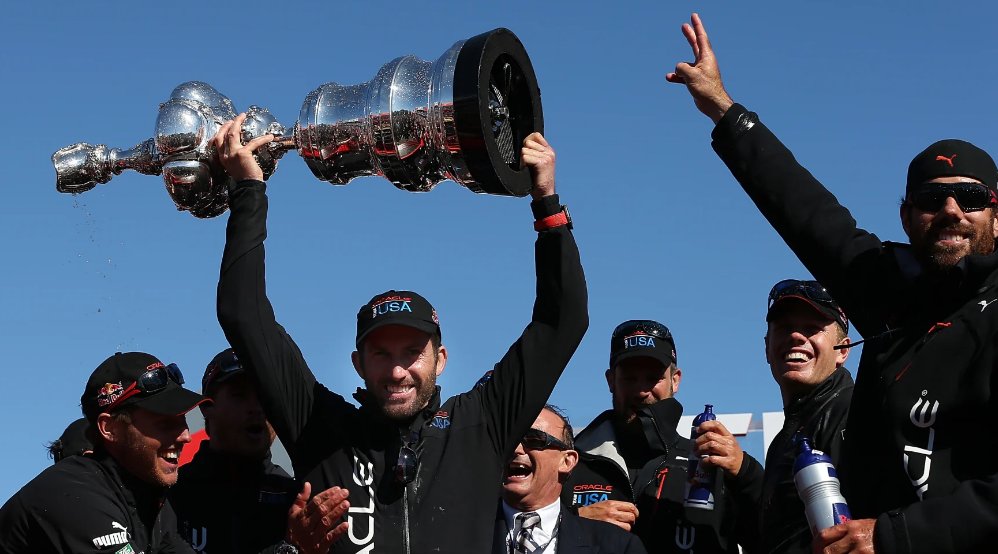
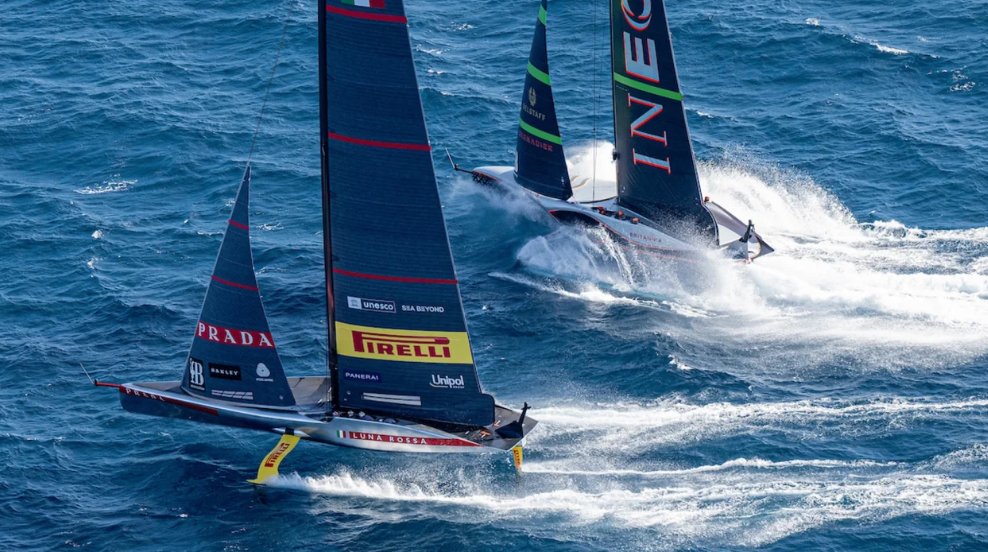




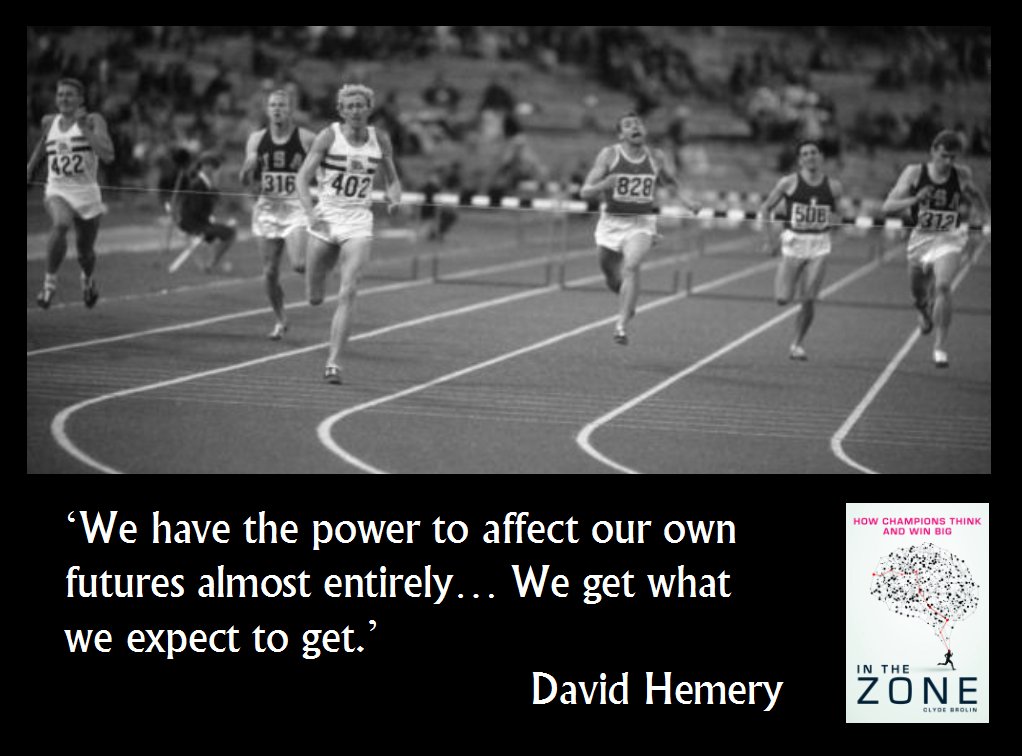
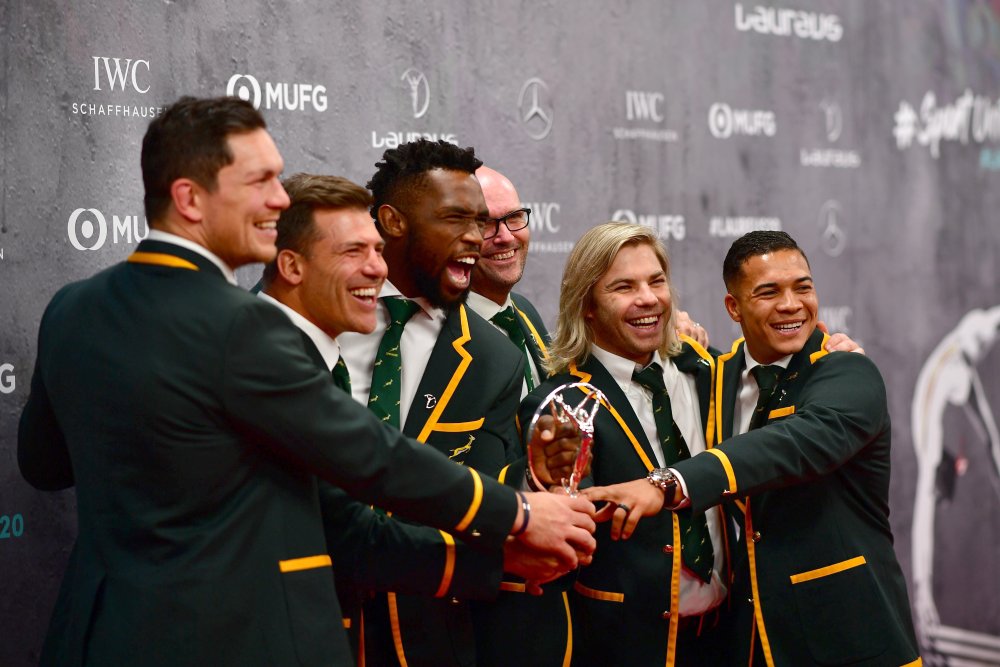

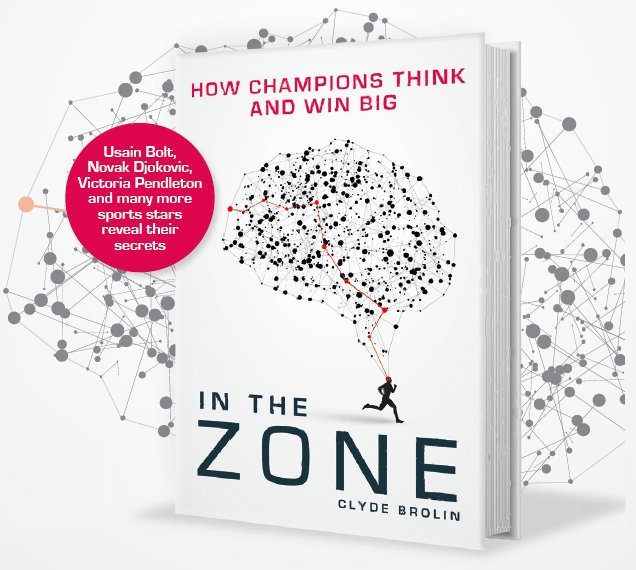
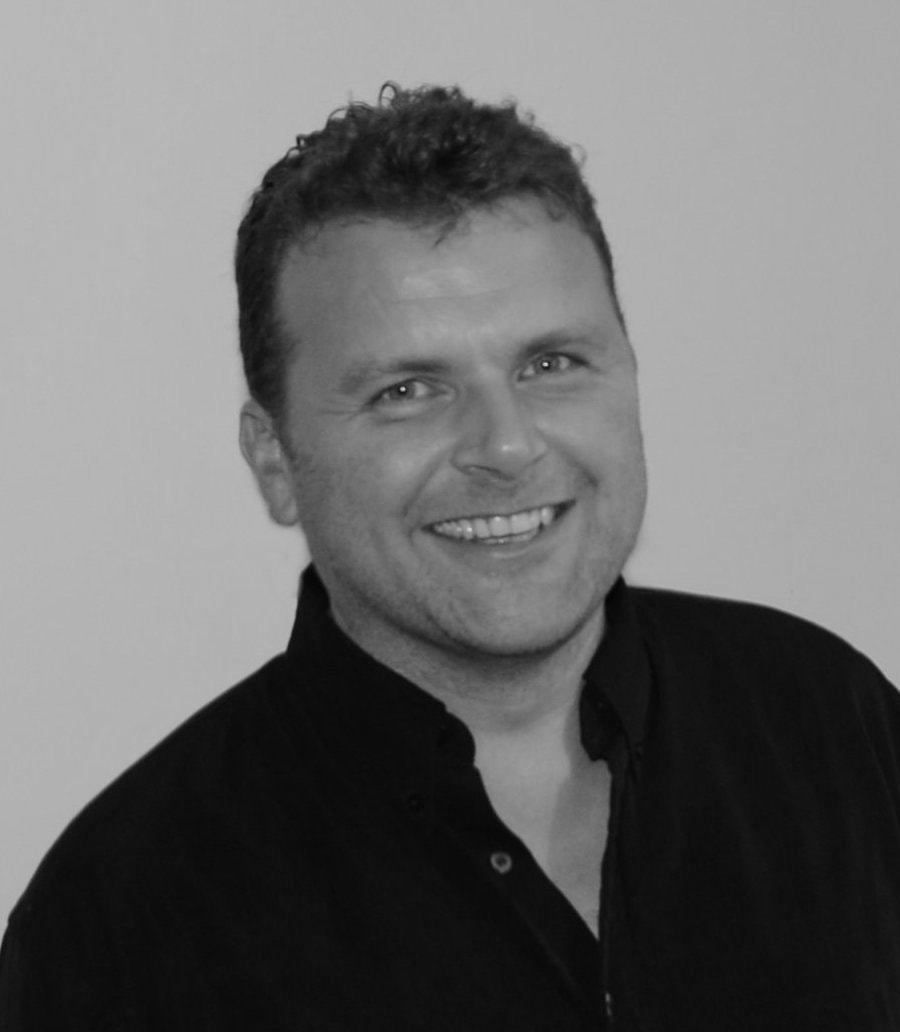
 RSS Feed
RSS Feed

